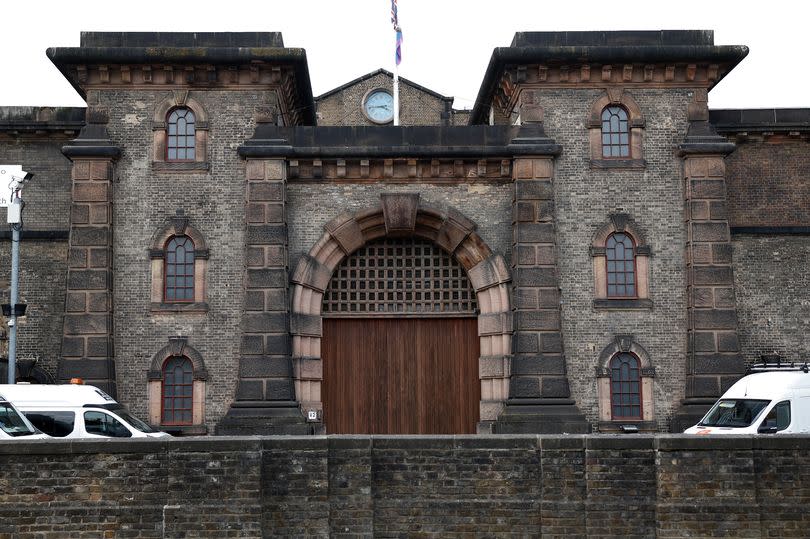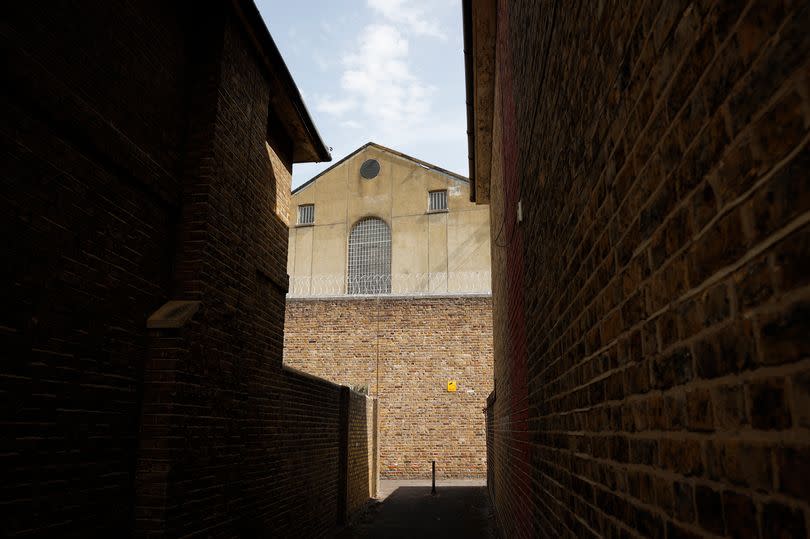HMP Wandsworth staff 'underestimated' risk prisoner posed to himself before he took his own life

HMP Wandsworth staff 'underestimated' the risk a prisoner posed to himself before he took his own life, a prison watchdog has found. Ross Springham, 29, died in hospital on March 20, 2021, four days after he was found with a ligature around his neck in his cell at HMP Wandsworth.
A report by the Prisons and Probation Ombudsman found 'some deficiencies' in the prison's management of suicide and self-harm monitoring procedures for Mr Springham, known as ACCT, including delays in holding an assessment interview, not setting actions designed to keep prisoners safe and not involving healthcare staff in all case reviews. The report said staff 'underestimated the risk posed by Mr Springham's unpredictability'. He was, however, being observed at least hourly which the ombudsman found to be 'reasonable' for the level of risk he had shown.
Mr Springham was charged with indecent exposure and sent to HMP Wandsworth on February 22, 2021, after being arrested wandering the streets naked the day before. He had been assessed in hospital the previous month after being found naked in public, with staff finding evidence of paranoia and psychosis.
READ MORE: Battersea primary school set to close amid falling pupil numbers despite petition signed by 3,200

Mr Springham told a nurse at HMP Wandsworth he had no mental health issues and no thoughts of suicide or self-harm. He said he would not see a psychiatrist when a GP told him he needed to be referred. Staff immediately started ACCT as they were concerned about his 'odd behaviour and unkempt appearance', the report said, and put him on hourly observations. He was monitored under ACCT throughout his three weeks at HMP Wandsworth.
The report said staff should have held a case review on February 23, within 24 hours of the ACCT being opened, but it appears it did not go ahead until February 28 after Mr Springham repeatedly refused to engage with them. On the same day, he stripped and jumped naked onto the netting of the landing below his cell after being asked to put a shirt on.
Mr Springham was moved to the prison's Addison Unit for assessment of possible psychosis on March 1. During his time on the unit, a psychiatrist raised concerns that prison was not the right place for him. Although staff could not reach a formal diagnosis, another psychiatrist noted he had probable underlying psychosis and referred him to a psychiatric intensive care unit in his home area of Nottingham for assessment. Staff also decided he was unfit to attend his court hearing on March 15.
Mr Springham grabbed a member of staff around the neck after his cell was unlocked for a shower on March 16. Staff decided he would not be unlocked again without three prison officers present. He was last seen at 11.31am that morning when he refused lunch.
A nurse saw Mr Springham lying naked on his cell floor during a roll check around half an hour later. Upon entering the cell, officers saw he had a ligature around his neck and was unresponsive. He was taken to St George's Hospital but did not regain consciousness and died on March 20. An inquest into his death, held in March this year, concluded that he died by suicide.
The ombudsman ruled Mr Springham's first ACCT case review should not have been delayed by four days. They also raised concerns staff did not identify any actions to reduce his suicide and self-harm risk as his caremap was 'left blank throughout' his time at HMP Wandsworth. The report said staff also assessed his risk as low, and prematurely reduced the frequency of his ACCT observations at a case review on March 9.
The report added: "Although Mr Springham had not self-harmed and repeatedly denied that he had any thoughts of doing so, he did not share his thoughts with staff, his behaviour was bizarre and unpredictable, and his mental health issues were undiagnosed and untreated. In these circumstances we consider that Mr Springham's unpredictability should have been seen as a risk factor in itself, and that, by not doing so, staff under-estimated his risk.
"We therefore consider that the decision to reduce his observations, particularly without someone from mental health present, was unwise. We recognise that Mr Springham was still being observed hourly by healthcare staff in line with the standard policy in the Addison Unit, but we are concerned that his risk to himself was underestimated by prison staff." The report recommended the prison makes sure staff manage inmates at risk of suicide and self-harm in line with national guidelines.
A Prison Service spokesperson said: "Our thoughts remain with Mr Springham's family and friends. We have accepted all of the ombudsman's recommendations and continually work to improve our support for those at risk of self-harm or suicide."
Have a story you want to share? Email charlotte.lillywhite@reachplc.com.
Don't miss out on the biggest local stories. Sign up to our MySouthLondon newsletter HERE for all the latest daily news and more.

 Yahoo News
Yahoo News 
